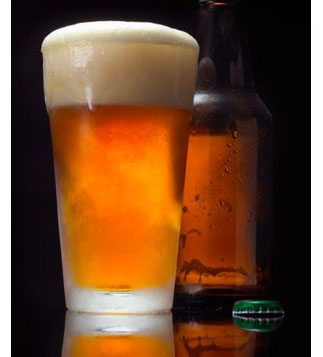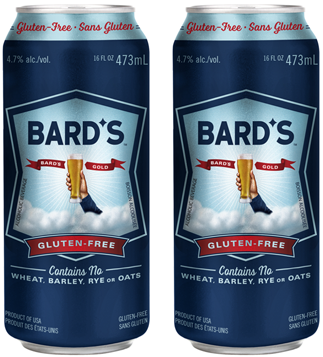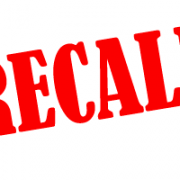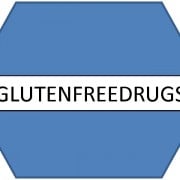Reminder – 2 Reasons Why Gluten-Removed Beers are No Good for Celiacs
 One common method for getting gluten out of beer isn’t working. The test used to find gluten in beer is broken, too.
One common method for getting gluten out of beer isn’t working. The test used to find gluten in beer is broken, too.
- Sam Lemonick, forbes.com 1
One thing that’s good is beer. One thing that’s bad is celiac disease. Unfortunately for people with the latter and others sensitive to gluten, they generally can’t enjoy the former.
Some beers are now being marketed to celiac sufferers and those who try to avoid gluten. The bad news is that new research appears to show that one common method for getting gluten out of beer isn’t working, and the test used to find gluten in beer is broken too. Scientists in Australia are working on a new test to ensure these beers, sometimes labelled “gluten reduced,” are safe for those with celiac disease.
Read More About Gluten-Removed Beer
- CCA Succeeds in Lobbying for Changes to Beer Labeling Requirements
- Study Shows Gluten-Removed Beer May Be Unsafe for Celiacs
- Gluten-Removed, Gluten-Reduced Beer. Safe for Celiacs?
- Canadian Celiac Association Update on Barley-Containing “Gluten-Free Beers”
- What About ‘Gluten-Removed’ Beers?
- ‘White Labs’ Claims to Make Any Beer Style ‘Practically’ Gluten Free
Some are made from rice or sorghum, grains that don’t contain gluten. Those ones are safe. Others are made with wheat or barley, which do contain gluten, and then processed to reduce the gluten levels.
Recent research has shown that the second kind might not be healthy for those with celiac disease.
There are actually two problems going on at the same time.
- The first is that the processes brewers use might not get rid of the harmful parts of gluten.
- The second, which analytical chemist Michelle Colgrave is addressing, is that the industry standard for food testing can’t actually figure out how much gluten is in beer.
That test is called an enzyme-linked immunosorbent assay or ELISA. It identifies antigens—the molecular structures that trigger an immune response—using antibodies, which identify antigens by shape and bind to them. But the process of fermenting beer can disguise those antigens from ELISA.
It’s so bad that in 2013, the US Food and Drug Administration ruled that beer couldn’t be labelled “gluten free” unless it was made from gluten-free starting materials, like rice. Brewers instead label their beers “gluten reduced” or something similar.
“ELISA as it stands cannot measure the gluten [in beer]. Unless they access an alternate technology they can’t know,” says Colgrave.
Colgrave, a researcher with the government-run Commonwealth Scientific and Industrial Research Organisation (CSIRO) in Australia, thinks there’s a better way to protect those with celiac. She demonstrated that in a new paper in the Journal of Agricultural and Food Chemistry, where she reports detecting gluten in a dozen beers labelled gluten-reduced with a new kind of test.
Gluten is a blanket term for a handful of molecules called storage proteins, which are a source of key molecules for developing plant embryos. In the small percentage of people with celiac disease—estimated to be about 1%—gluten triggers an immune response in the gut. It’s uncomfortable and can lead to serious complications. Another 5% or so of people have gluten sensitivity, which has similar symptoms but murkier causes.
Beermakers have a couple options when trying to make gluten-reduced beer if they start with wheat or barley, which contain gluten: filter the gluten from the beer, or destroy the gluten in the beer.
The latter is generally done with enzymes—biological catalysts that speed up chemical reactions—that snip gluten proteins into little bits. 10 of the 12 gluten-reduced beers Colgrave tested were made that way.
- Unfortunately, that process doesn’t necessarily get rid of the antigens that trigger a response in people with celiac. A study from March found that these beers triggered an immune reaction when tested against the blood of some celiac patients.
Colgrave didn’t look into why these beers had unsafe levels of gluten—above 20 milligrams gluten per kilogram of beer. It may be that they’re using the enzymes meant to break down gluten in the wrong way. In most cases, says Colgrave, the companies don’t reveal their methods to protect their processes from competitors.
Instead, Colgrave is trying to develop a better test than ELISA so makers of gluten-reduced beer can assure customers their products are safe.
Her group turned to a different analytical method called liquid chromatography-mass spectrometry (LC-MS). These devices have two parts: a long tube that lets some kinds of molecules slip quickly through but slows others almost to a standstill, followed by a chamber that measures the mass of a molecule or the parts of a molecule. An LC-MS machine can quickly and accurately determine what chemicals are in a sample. Gluten, for instance.
- ELISA’s problem in testing gluten-reduced beers is identifying fragments of gluten. Whether the proteins are broken down with enzymes or by natural processes during fermentation, the ELISA antibodies sometimes can’t recognize these smaller bits. But earlier research suggests they may still be causing an immune response in people with celiac disease.
In Colgrave’s experiments, all the beers she tested had been rated by their makers to have gluten levels below 20 mg/kg, according to ELISA. But she found detectable gluten fragments in every sample using LC-MS, and most had much higher levels of gluten than ELISA detected.
- She says the enzyme treatment used to remove gluten does not seem to be working consistently. “Across the range of commercial beers that have been produced using an enzyme, the application of the enzyme appeared to be inconsistent. There were some beers that had very low levels of gluten, barely detectable, while others had as much as an untreated beer,” Colgrave says.
Right now, LC-MS has not been validated by the government agencies around the world that regulate food safety, so it can’t replace ELISA. Colgrave’s team is working now to get that done.
Colgrave’s group did not identify the different beers they tested, so it’s impossible to know from her study which brands are the worst offenders. She says her team was not trying to name and shame any particular product.
There is another possibility, though it’s one Colgrave denies. If her team is able to get their testing method validated, they might be in a position to sell their services to beermakers, or earn royalties from the technique. She says she hopes that the industry does adopt her group’s methods. But making money, Colgrave says, is not their main goal.
“We want to work with regulators, we want to work with companies if we can, to ensure the safety of any products that are out there,” she says.
Disclosure: Sam Lemonick is a former employee of the American Chemical Society, which publishes the Journal of Agricultural and Food Chemistry, and a writer for the ACS’s video series, Reactions.














